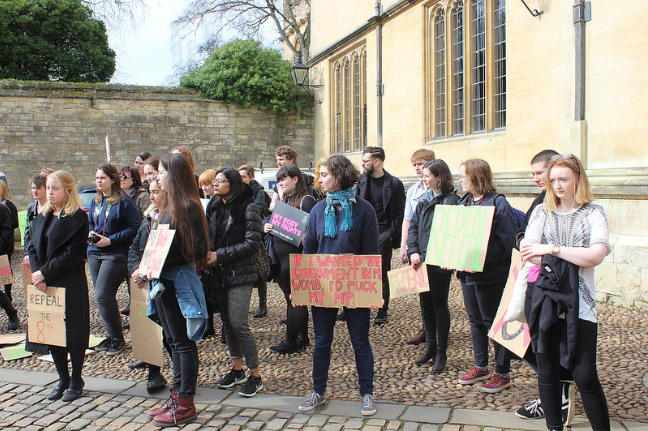Pro-choice activist Eileen Cook, based in Scotland, writes on the Abortion Act and continuing struggles to protect and broaden reproductive rights.

The 1967 Abortion Act represented a historic step forward for women in England, Scotland and Wales. However, throughout the fifty years that the Act has been on the statute book pro-choice activists have had to repel repeated attempts to curtail its provisions. The first major challenge to the law was in 1975 when Glasgow MP James White sponsored a private members bill to limit the operation of the act. Women activists set up the National Abortion Campaign (NAC) to galvanise opposition to the bill. NAC (SAC in Scotland) was to operate differently from the Abortion Law Reform Association (ALRA) which had lobbied for the legalisation of abortion, and would find itself at the forefront of the opposition to a number of attempts to limit the law. This article looks at this struggle and particularly reflects on it from a Scottish perspective.
In 2016 Abortion Law was devolved to the Scottish Parliament. The 1999 devolution settlement had given powers over health care to the new Scottish Parliament with just one exception. Abortion Law was left as a reserved matter for the Westminster parliament. This was sold to women in Scotland as a way of protecting existing abortion law from those who would be quick to tighten it. This view was contested by the Scottish Abortion Campaign (SAC) who argued at the time that we could and should mobilise in Scotland to protect and extend the law. The merger of ALRA and NAC/SAC in 2003 to form the group Abortion Rights saw many activists continuing to campaign for Abortion Law to be devolved with the rest of healthcare. We oppose all attempts to treat abortion as ‘something else’ than a women’s health matter and have campaigned for it to be freely available on the NHS on the same terms as all other health issues. For example, Abortion Rights in Scotland are pushing for equality of access for women in rural areas (who usually have to travel to the cities). Scotland has been a major destination for women in Northern Ireland who are denied access to Abortions at home and we have lobbied for and supported women who travel to Scotland for abortions. The Scottish Government has now taken this on as a commitment. There has also been a success in achieving easing of restrictions on taking the abortion pill. So far the Scottish pro-choice lobby has been more successful than the antis.
From 1975 women trade unionists in NAC had been campaigning in their own unions for support for abortion rights and for the involvement of the TUC in defending the law. In 1979 this finally paid off when the TUC called a massive demonstration against the Corrie anti-abortion bill. This brought together the women’s movement and the trade unions and was an important step in winning the argument that a woman’s right to choose was a class issue and should be supported and defended as such. In Scotland the firm support of the Scottish TUC’s Women’s Committee has been really important for pro-choice campaigners and Abortion Rights (Scotland). Abortion Rights has been effective in combatting the actions of the anti-choice brigade – particularly outside clinics – and to a large part this has been a product of an important coalition between activists, trade unionists, women’s organisations and NHS providers.
The last two years have seen an increased focus on international solidarity. In 2016 we worked with women from Spain and women from Poland who were defending women’s abortion rights. These demos also helped to spread the word about Scotland and share experience. We also mobilised for the huge protests as Trump was elected, bringing the issue to the attention of a new generation of activists. This year there is a bigger focus on Ireland and we are working with Irish women on the upcoming referendum.
In many ways it has been a hard 50 years. The 1967 act was a huge, if imperfect, step forward for women. Many women in the generation that benefited from the legalisation of abortion have spent a large part of their lives fighting to keep it. However, that fight has had effects far beyond the immediate issue. Now all Trade Unions support us, public opinion is with us and we can call on wide support for our campaigning.


















